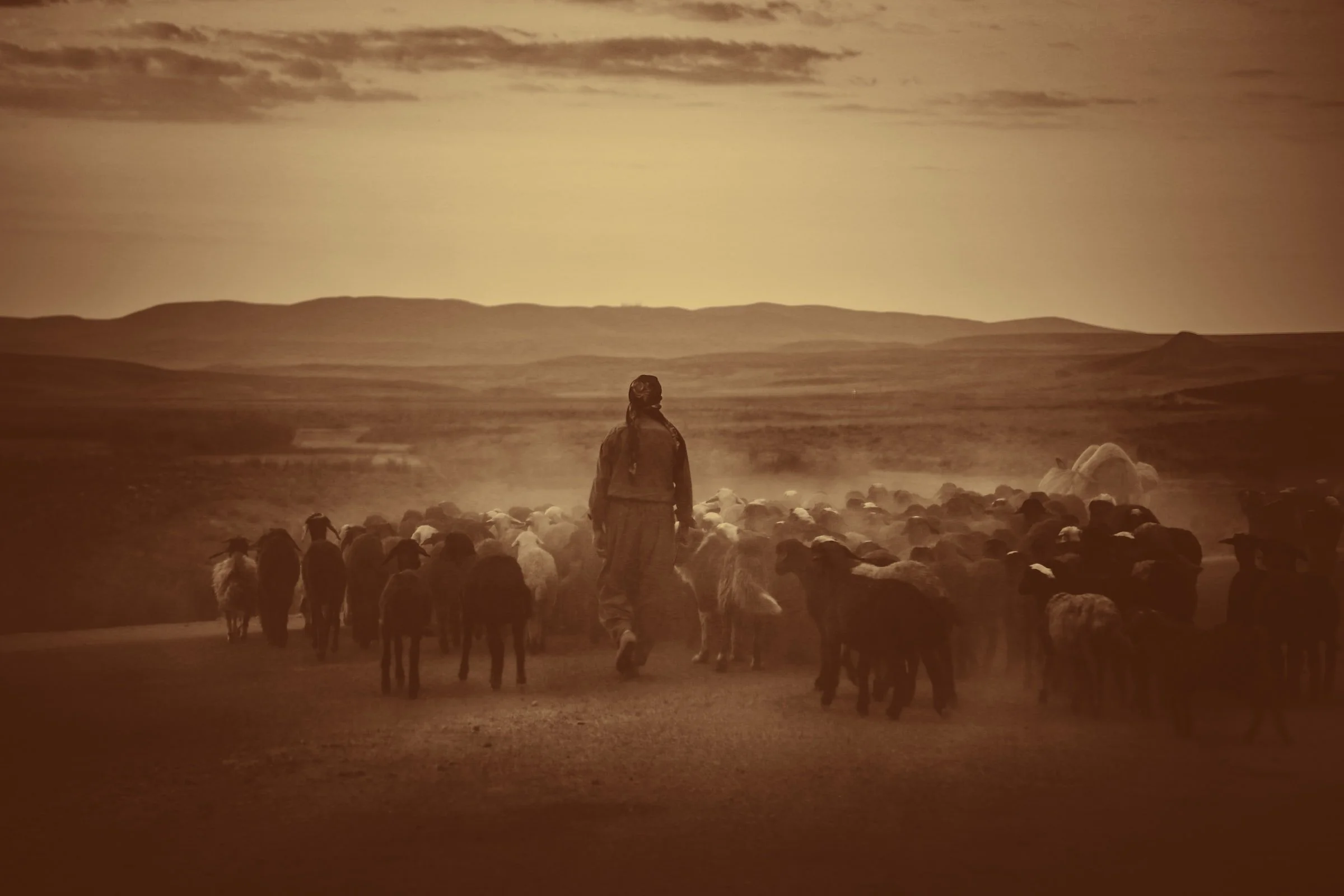The book of Numbers is known for Israel’s many rebellions, including Korah’s rebellion (Numbers 16:1-50). Aaron and Miriam had rebelled against Moses, but now other leaders in Israel rebelled. These leaders included Korah (a Kohathite of the tribe of Levi), Dathan, Abiram, On (of the tribe of Reuben), and 250 prominent leaders of Israel whom they assembled (Numbers 16:1-2).
These men challenged the authority of Moses and Aaron. They cited that “all in the congregation are holy,” and they asked why they “exalt yourselves above the assembly of Yahweh” (Numbers 16:3, all translations hereafter are mine).
The Basis for Korah’s Complaint
As a son of Kohath, Korah was a Levite who served in the tabernacle (Numbers 4:1-20; 7:9; 10:21). Korah was also the first cousin of Moses and Aaron, whose father Amram was also a son of Kohath (Exodus 6:16, 18, 20; cf. Numbers 16:1). However, Korah rebelled because he was not a priest like Aaron and his sons. Korah exemplified a lack of contentment in God’s calling and instead coveted the position of the priests. Ironically, Korah wanted to do the very thing God warned would lead to the death of the Kohathites, which was to approach the holy things (Numbers 4:17-20).
Korah’s theological argument was a bad use of logic. He reasoned from the truth that all Israelites were in a sense holy (Exodus 19:6) to the conclusion that all Israelites, including himself, should be priests. Yet that clearly violated God’s command that the priests come from the sons of Aaron. Korah’s claim is akin to arguing that because all Christians are “priests” in a sense (1 Peter 2:9; cf. Exodus 19:6), then anyone, including women, may be pastors. Yet Scripture forbids that very thing (1 Timothy 2:12).
Korah’s Judgment
Moses instructed Korah and the others to take censers and put fire in them in the morning, as the Lord would show them who is “his” and “holy” (Numbers 16:5-7). (Paul quotes 16:5 [LXX] in 2 Timothy 2:19 regarding false teachers.) The rebels said Moses and Aaron had gone too far, but Moses said it was actually the Levites who had gone too far (16:3, 7). Moses asked Korah and his rebels if the Lord’s appointed service of the tabernacle was “too small” a task of them (16:8-9). He then asked, “Do you also seek the priesthood?” (16:10). Moses indicated Korah’s “congregation”—contrasted with the “congregation” of Israel (16:9)—did not just “grumble” against Aaron but rebelled “against Yahweh” (16:11).
Moses called for Dathan and Abiram, sons of Eliab, of the tribe of Reuben (Numbers 16:1), but they refused to come up (16:12). They even asked if it was a “small” thing that Moses made himself a ruler and brought them out of “a land flowing with milk and honey”—ironically calling Egypt the true Promised Land—to instead die in the wilderness (16:13-14).
Moses was understandably angry, and he asked God to disregard their offering (Numbers 16:15). Moses then told Korah to come before the Lord with their censers at the entrance tent of meeting, and God’s glory appeared there (16:16-19). God wanted to consume Korah’s congregation, and He called for Israel to get away from the homes of Korah, Dathan, and Abiram (16:21-24).
Thus, Israel moved away from the tents of “these wicked men,” and Dathan and Abiram and their wives and children came out with them (Numbers 16:25-27). Then the ground split and swallowed them up, while Yahweh’s fire consumed the 250 men with censers (16:31-35). This showed that Moses was indeed sent from the Lord (16:28-30). Then God pronounced the bronze censers to be “holy” and said they should be hammered into covering for the altar as “sign” and warning to the people (16:36-40). (The psalmist links the wilderness rebellion in Numbers, including Korah’s rebellion, with the golden calf incident in Psalm 106:14-19.)
The Survival of the Sons of Korah
Numbers 16:32 says the ground swallowed Korah’s household and “every man that [belonged] to Korah.” However, Numbers 26:11 makes it clear that “the sons of Korah did not die.” This is evidenced by later Scripture, as the “sons of Korah” also wrote several psalms (Psalms 42; 44–49; 84; 85; 87; 88; cf. 2 Chronicles 20:19). And Samuel was even a descendant of Korah through his son Abiasaph (1 Chronicles 6:33-37). (Exodus 6:24 tells us the names of Korah’s sons were Assir, Elkanah, and Abiasaph.)
This means that Korah’s sons followed Moses’ command to “depart” from Korah’s tent so as not to be destroyed because of his sin (Numbers 16:25-26). Rather than follow their earthly father Korah, these sons followed God’s appointed leader Moses. Thus, they did not walk in their father’s sins, and God did not consider them to truly belong to Korah. Instead, they sided with Moses and the congregation of Israel and thus remained faithful toward the Lord.
The Lord’s Mercy
This is a wonderful example of the Lord’s mercy toward those who repent from the sins of their fathers. God says He “will by no means clear the guilty, visiting the iniquity of the fathers on the sons to the third and to the fourth [generation]” (Numbers 14:18; cf. Exodus 20:5-6; 34:6-7; Deuteronomy 5:9). Yet He also says sons shall not be “put to death” for the sins of their fathers (Deuteronomy 24:16; cf. 2 Kings 14:6; 2 Chronicles 25:4).
These passages are often pitted against each other as contradictions. But they are no such thing. Rather, these Scripture texts complement one another by teaching that God will judge the children of the wicked so long as the children walk in those same sins. God may judge a family for generations, but everyone dies for his own sin, not for the sins of his father. However, if the children of a wicked man repent of their sins and turn to the Lord, then He will show His mercy toward them.
Yes, God visits “the iniquity of the fathers on the sons to the third and to the fourth [generation].” But He is also “merciful” and “forgiving” (Exodus 34:7; Numbers 14:18). And He shows “steadfast love” to those who love Him and keep His commands (Exodus 20:6). This is the story of the sons of Korah. May we follow their path.


